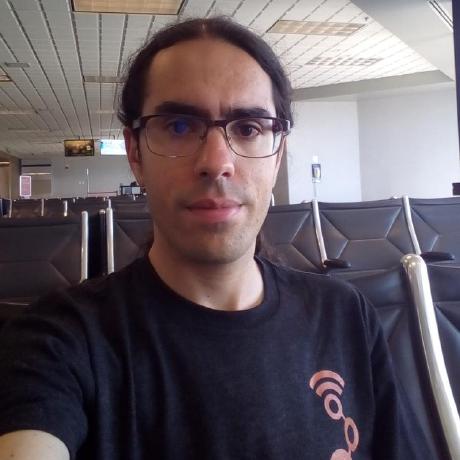Ecosyste.ms: Awesome
An open API service indexing awesome lists of open source software.
https://github.com/fair-acc/gnuradio4
Prototype implementations for a more compile-time efficient flowgraph API
https://github.com/fair-acc/gnuradio4
Last synced: about 2 months ago
JSON representation
Prototype implementations for a more compile-time efficient flowgraph API
- Host: GitHub
- URL: https://github.com/fair-acc/gnuradio4
- Owner: fair-acc
- License: other
- Created: 2022-12-14T16:52:34.000Z (about 2 years ago)
- Default Branch: main
- Last Pushed: 2024-11-07T12:47:46.000Z (about 2 months ago)
- Last Synced: 2024-11-07T13:47:12.166Z (about 2 months ago)
- Language: C++
- Size: 5.74 MB
- Stars: 32
- Watchers: 13
- Forks: 12
- Open Issues: 44
-
Metadata Files:
- Readme: README.md
- Contributing: CONTRIBUTING.md
- License: LICENSE
- Code of conduct: CODE_OF_CONDUCT.md
Awesome Lists containing this project
README

[](https://opensource.org/licenses/LGPL-3.0)

[](#contributors-)
# GNU Radio 4.0 prototype
> [!IMPORTANT]
> This is the GNU Radio 4.0 (GR4) prototype and is currently in a beta state. For production use,
> please use the GNU Radio 3.X (GR3) version found [here](https://github.com/gnuradio/gnuradio).
> Bug reports related to this beta should be submitted [here](https://github.com/fair-acc/gnuradio4/issues),
> and bug reports for GNU Radio 3.X should be submitted [here](https://github.com/gnuradio/gnuradio/issues)
GNU Radio is a free & open-source signal processing runtime and signal processing
software development toolkit. Originally developed for use with software-defined
radios and for simulating wireless communications, it's robust capabilities have
led to adoption in hobbyist, academic, and commercial environments. GNU Radio has
found use in software-defined radio, digital communications, nuclear physics, high-
energy particle physics, astrophysics, radio astronomy and more!
## Development
If you want to start working on the GNURadio 4.0 source, the [DEVELOPMENT.md](DEVELOPMENT.md) file describes how to set up a local development environment.
## Helpful Links
* [GNU Radio Website](https://gnuradio.org)
* [GNU Radio Wiki](https://wiki.gnuradio.org/)
* [Github issue tracker for bug reports and feature requests](https://github.com/fair-acc/gnuradio4/issues)
* [View the GNU Radio Mailing List Archive](https://lists.gnu.org/archive/html/discuss-gnuradio/)
* [Subscribe to the GNU Radio Mailing List](https://lists.gnu.org/mailman/listinfo/discuss-gnuradio)
* [GNU Radio Chatroom on Matrix](https://chat.gnuradio.org/)
* Specifically for discussions related to GNURadio 4.0 join the [#architecture channel](https://matrix.to/#/#architecture:gnuradio.org)
* [Contributors and Affiliated Organizations](https://github.com/gnuradio/gnuradio/blob/main/CONTRIBUTORS.md)
## What's New in GNU Radio 4.0?
- **Smooth Transition with Updated GR3 Paradigms**: User-defined blocks and flow-graphs continue to be accessible graphically, through Python, and using C++. Notable simplifications and streamlining have been made to the underlying low-level architecture and design, as described [here](https://github.com/fair-acc/gnuradio4/tree/main/core).
- **Enhanced Data Types**: Support for fundamental data types (i.e. ints, floats, complex numbers) as well as more complex, structured, and user-defined custom types.
- **Simplified Block Development**: Modern C++ and computing standards enable rapid development.
- **High-Performance Signal-Processing**: Significant performance boosts from lock-free buffers, compile-time optimisations, and built-in SIMD & SYCL support.
- **Flexible Scheduling**: An updated scheduling method improves performance and enables user-defined schedulers to balance throughput, parallelism, and latency depending on the application.
- **Recursive Directed Graphs**: Support for basic feedback loops.
- **Broadened Hardware Support**: Ready for CPUs, MCUs, GPUs, and aspirationally FPGAs.
- **Bridging R&D and Industrial Use**: Aims to bridge the gap between academics using GNU Radio for research, hobbyists using it for prototyping and safe operational use by research organizations and industry.
## License and Copyright
Unless otherwise noted: SPDX-License-Identifier: LGPL-3.0-linking-exception
All code contributions to GNU Radio will be integrated into a library under the LGPL, ensuring it remains free/libre (FLOSS) for both personal and commercial use, without further constraints on either.
For details on how to contribute, please consult: [CONTRIBUTING.md](CONTRIBUTING.md)
Copyright (C) 2001-September 2020 GNU Radio Project -- managed by Free Software Foundation, Inc.
Copyright (C) September 2020-2024 GNU Radio Project -- managed by SETI Institute
Copyright (C) 2018-2024 FAIR -- Facility for Antiproton & Ion Research, Darmstadt, Germany
## Acknowledgements
The GNU Radio project appreciates the contributions from FAIR in the co-development of GNU Radio 4.0. Their dedicated efforts have played a key role in enhancing the capabilities of our open-source SDR technology.
We would like to recognize the following contributors for their roles in redesigning the core that has evolved into GR 4.0:
## Contributors
Thanks goes to these wonderful people ([emoji key](https://allcontributors.org/docs/en/emoji-key)):

Alexander Krimm

Bailey Campbell

Daniel Estévez

Dennis Klein

Frank Osterfeld

Ivan Čukić

Matthias Kretz

Philipp Niedermayer

Ralph J. Steinhagen

Toby Flynn

drslebedev

mormj

Add your contributions